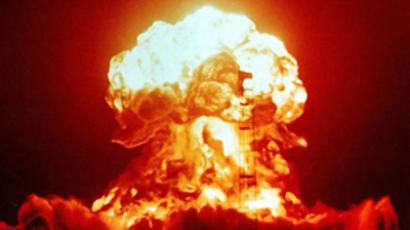World leaders to confront nuclear terrorism at Washington summit
Leaders of 47 countries have gathered in Washington DC at the world nuclear summit to stop the spread of nuclear weapons and prohibit weapons from reaching terrorists.
Nuclear materials in the hands of Al-Qaida or another terrorist group “could change the security landscape in this country and around the world for years to come,” said US President Barack Obama, setting the agenda of the meeting. He called the nuclear threat the “single biggest threat to US security”.
The summit would be the largest assembly of world leaders hosted by an American president since 1945 at the San Francisco conference to found the United Nations.
On the table will also be Iran's alleged attempts to build a nuclear weapon in violation of the global Nuclear Nonproliferation Treaty and North Korea's nuclear issue. The two countries were not invited to the meeting.
Iran’s president Mahmoud Ahmadinejad in response called Washington’s nuclear security summit “humiliating for humankind”, as IRNA reports.
"International meetings, held these days, disgrace humankind,” IRNA quotes him as saying, “Your [US] gift to the world is a nuclear bomb, while Iran represents humanity.”
Syria was not invited to the meeting because the US believes Damascus also has nuclear ambitions.
Israeli Prime Minister Benjamin Netanyahu will not attend the conference as planned, Israeli officials said last week.
Insiders said Netanyahu was worried that Turkey and Egypt would use the summit to challenge him over his country's nuclear arsenal, which the Jewish state has never acknowledged, according to AP. In Netanyahu's absence, Israel will be represented by Deputy Prime Minister Dan Meridor.
Dr. Alan Mckinnon, chair of the Scottish campaign for nuclear disarmament, says there has to be internationally agreed upon systems to work out the way to deal with nuclear materials on a country-by-country basis.
“We believe that the most important thing we can do to reduce the threat of nuclear material falling into the wrong hands is to actually, steadily and progressively get rid of these weapons and materials and that means that a nuclear weapons convention that involves all the countries in the world should lead to a global ban on these weapons,” Mckinnon told RT.
Dr. Adrian Pabst, a lecturer in politics and international relations from the University of Kent, believes that this summit is just a next step in a long chain of similar events.
“The first one was signing the treaty with Russia last week about nuclear arms reduction. The next step is trying to involve a larger group of countries in a dialogue about how to prevent nuclear proliferation,” Pabst told RT, “So I think we have to see it very much as the beginning of a long process. And the outcome will very much depend on the willingness of the main nuclear powers like the US and Russia to include other countries in the ongoing negotiations, not just to do this at the bilateral level.”













